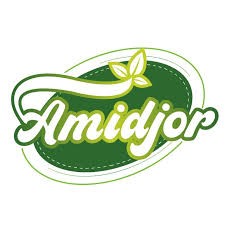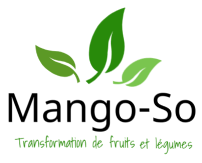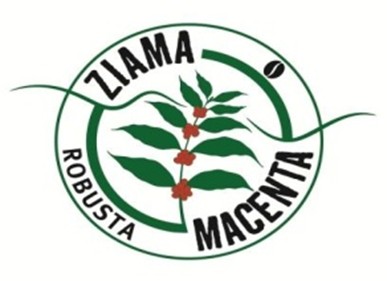Amidjor is a company specialized in agri-food production, processing, and training.

Alice has studied agribusiness at the Polytechnic University of Bobo-Dioulasso in Burkina Faso. From 1992-1999, she dried mangoes in a micro-enterprise in the informal sector in Ouagadougou. In 2000, she left the capital city to settle in the heart of the mango orchards in Toussiana,the Hauts Bassins province, and started her own mango drying business. She also participated in management and drying techniques training in order to improve the quality of her mango production.
Alice is the president of the association Le Cercle des Sécheurs, a professional group of producers and traders of dried mangoes.

Type: Limited Liability Company
Year of Founding: 2000
Number of Employees: 22 full-time administrators, including six women, and 478 part-time workers, including 450 women
CEO: Alice Fatmata Riouall
Business model
The overarching mission of Mango-So is to contribute to fighting poverty through creating employment, especially for women, providing them with financial autonomy and technical skills in the fruit and vegetable processing sector.
Mango-So’s three core values are quality, innovation and solidarity. Its business model focuses on developing the fruit and vegetable sector in Burkina Faso by:
Alice Riouall created Mango-So in 2001 with the idea of using traditional processing and conservation methods to dry mangoes. To do so, Alice has been supported by the Swiss NGO Centre Ecologique Albert Schweitzer (CEAS), which provided her training on the drying technic. She started using an attesta dryer, made out of wood by local artisans, which operates using gas without forced ventilation (static drying by natural convection).
From 2012, Mango-So enhanced the volume of its dried produce with the acquisition of seven tunnel dryers. These dryers are imported from South Africa, and run on gas, electricity and forced ventilation (dynamic drying).
Mango-So constantly anticipates market developments to respond to consumers’ needs and remain competitive in various markets – mango jam for the European market, dried tomatoes for the local population.
Strong relationships with smallholders
Mango-So receives fresh mangoes from a group of local producers, and has supported them to create a producers’ organisation, ensuring they are paid the conventional market price set annually by a producers’ organization (APROMAB).
Mango-So has a 125 m² meeting room with a video projector and can accommodate up to 60 people. Mango-So provides training for all new staff, as well as additional training as required for HACCP, organic, FLOCERT and quality certification.
Fresh mangoes are supplied to Mango-So by about 36 producers, 20 of which are certified organic and Fairtrade. During the mango campaign (which lasts 4–5 months), Mango-So employs about 500 additional workers, 80% of whom are women.
Mango-So imports coconuts from Côte d’Ivoire. During the coconut harvest period the company employs about 250 workers, 80% of whom are women.
Products covered and markets
Mango-So processes mainly mango and coconut, with 90% being exported to international markets, mostly to Europe. Processed coconut is produced only as dried coconut chips.
The company’s mango product range includes dried mango, mango jam and mango syrup. Dried mango is produced from the Amélie, Brooks, Kent and Lippens mango varieties.
Mango-So also processes vegetables, but on a smaller scale than mango and coconut. The dried tomatoes it produces are mostly for the domestic market.
Mango-So is Organic certified since 2001, and HACCP and Fairtrade certified since 2017.
Innovations: Milestones and expansion plans
Mango-So started out in 2001 with an initial investment of 10 million CFA francs. After successive self-investments, the actual overall investment is estimated at nearly 900 million CFA francs.
The tunnel dryers receied by Mango-So in 2012 (described above) were provided through the Programme d’Appui aux Filieres Agro-Sylvo-Pastorales (PAFASP), an agricultural diversification and market development project led in Burkina Faso and financed by the World Bank.
Since 2018, Mango-So has also received various supports from COLEACP in the form of self-assessment support; and training in various areas: commercial negotiation, management of commercial disputes, optimising the management of packaging stations, qualifying training for GLOBALG.A.P. (internal controllers’ option), Covid-19 health quality management, the diagnosis of losses and reduction, and the recovery of waste in mango processing (drying) structures.
Two future investments are foreseen in developing Mango-So’s business. First, an investment to diversify the company’s product range to processing cashew nuts. To achieve this, Mango-So is prospecting for international infrastructure suppliers, notably in Vietnam and in India. The second investment aims to secure the company’s autonomy in fruit production. Mango-So has a 180 ha land field to create its own orchard and organise it in a modern way. Mango-So bought a tractor and various equipment (trailer, plough, sprayer, tree planter, gyro-crusher, water tanker and seed drill). An addition potential investment is a cold room to extend the production period of dried mango and reduce losses (due to a lack of cold storage capacity and the unpredicted ripening of the mangoes).
As these investments are considerable, Mango-So is currently looking for technical and financial partners to support its projects.
Success factors and lessons learned
Mango-So’s successful development has a positive impact on the local economy of the community close to the production site, the city of Toussiana, where it is the largest employer. This benefits the fruit and vegetable producers, whose income has substantially increased.
Mango-So participates in the community life of Toussiana by improving its workers’ children’s health and education, promoting gender equality by enabling both young and adult women to become economically independent, and combating women’s exclusion and early and forced marriages, among others. The company also supports community sports and cultural activities.
Additional Resources
Join our Forum to discuss and explore how to encourage innovations across agricultural value chains to transform food systems in African, Caribbean and Pacific countries and beyond, promote sustainable agriculture & leverage investments. Share insights, ask questions, and collaborate on innovative solutions for a greener future.
Recent Business Profiles

Amidjor is a company specialized in agri-food production, processing, and training.

ADECAM is a community-driven organisation in Guinea dedicated to protecting, promoting, and developing the Ziama-Macenta Geographical Indication coffee, while supporting smallholder producers...

Tac Maz Sustainable Ventures is a climate-smart social enterprise in Malawi supporting smallholder farmers through sustainable poultry and horticulture production.

Bono Salus is a Zimbabwean woman-led agribusiness specializing in urban hydroponic farming of microgreens.

The Nut Place is a Nigerian food innovation company that processes locally grown edible nuts into gluten-free, nutrient-dense products to improve nutrition, reduce post-harvest losses, and promote...